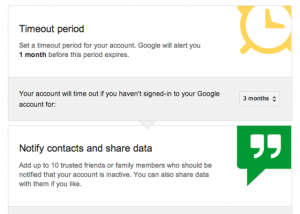
Abercrombie & Fitch has been affected by a dramatic decrease in sales in the US. ANF’s stock had once been gaining 20%, when the stock market barely moved. However, everything came to an end on May 24, 2013, when ANF reported its earnings. ANF’s store sales declined 17%. Their shares then went down 8%. Even though they reduced their loss to $7.2 million from $21.3 million, it completely blew Wall Street’s prediction of $0.05 loss per share.
What could be the cause of these huge losses that Abercrombie is facing? Is it the result of CEO Mike Jeffries’ comments that resurfaced recently from a 2006 interview, on how the Abercrombie and Fitch brand don’t carry plus sizes for teens, because the brand exclusively only goes after the cool, good-looking kids? Or could there be something more?

Well, it turns out that Abercrombie started declining before the CEO’s comments reemerged this year. Even though there has been a lot of consumer out lash at the company, the CEO insists that the main problem facing Abercrombie is inventory shortage issues. Abercrombie hasn’t been able to bring in their spring merchandise quickly into the stores, compared to most of their competitors like H&M, who believe in fast-fashion. To gain a competitive advantage and to get back on their sales track, Abercrombie is changing the way they order their inventory, for a quicker turnaround. The CEO stated that most of their inventory issues have been resolved now, however, their sales profits forecasts has been lowered for the rest of the year, compared to previous years. With the company operating 1,053 stores currently, they also predicted to close 40 to 50 stores in the United States. Abercrombie has been acting really quickly on addressing key issues throughout their company to get their profits back up.
In class, we learned about the ten critical decisions which includes inventory management, then we learned about ethics and social responsibility and finally forecasting. Abercrombie’s situation ties in all of these things we’ve learned and teaches us how important these factors are in a business.

The company is now dealing with their losses and their shares plunging, just because of the inventory issue. Another issue, I think they’re facing is the social media. As a reputable company, they have a social responsibility to respect all of their customers. Ever since the CEO’s comments appeared in the media, many people have been fighting against Abercrombie (Examples: A man donating Abercrombie clothes to homeless, a plus size blogger posing in similar Abercrombie ads, a teen activist who petitioned for an apology from the CEO with 68,000 signatures). Do you think that Abercrombie is dealing with these losses solely because of their inventory management or because of the recent outlash at the company? Also, will Abercrombie remain confident in their solid brand equity, when its competitors like H&M, American Eagle, and Aeropostale are attracting teens with their prices and fast fashion layout, bringing in new merchandise to the stores more often?
Source:
http://www.latimes.com/business/la-fi-abercrombie-earnings-20130525,0,6735405.story
http://www.chicagotribune.com/business/breaking/chi-abercrombie-earnings-20130524,0,3689716.story
Plus size blogger: http://abclocal.go.com/kgo/story?section=news/business&id=9113106
Video:
Man giving homeless people, Abercrombie & Fitch clothes: http://www.youtube.com/watch?v=TPmqZAhLVuI


